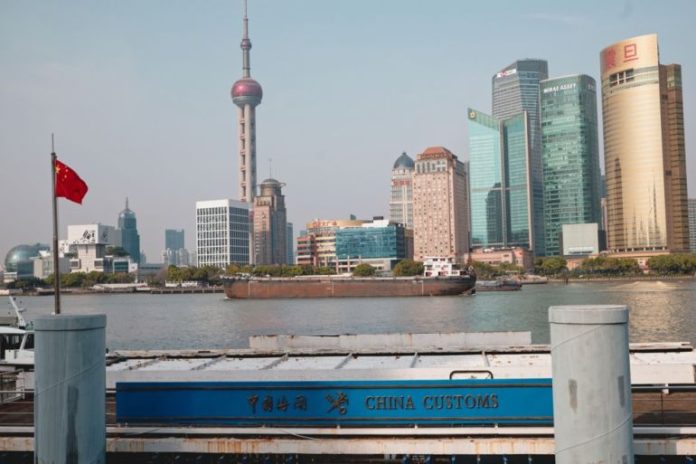Beijing retaliates against Washington’s steep tariff hikes with a massive levy of its own, while filing a WTO challenge and blaming the Trump administration for global economic instability.
In a dramatic escalation of the ongoing trade war, China has announced that it will impose a 125% tariff on all goods imported from the United States. The move, revealed on Friday by Beijing’s State Council Tariff Commission, is set to take effect on Saturday and comes as a direct response to President Donald Trump’s latest round of tariff increases.
Labeling the US tariffs as a violation of international trade norms and basic economic principles, China condemned Washington’s actions. “The US’s imposition of abnormally high tariffs on China seriously violates international trade rules, basic economic laws, and common sense,” the commission stated.
Earlier this week, President Trump raised tariffs on Chinese imports, bringing the total levies to 145%, including a newly announced 125% tariff. A separate 20% tariff tied to China’s alleged role in fentanyl production was not included in that total. At the same time, he temporarily suspended tariff hikes on goods from other countries after sharp negative reactions in US financial markets.
China’s Ministry of Commerce has responded not only with counter-tariffs but also by initiating a formal complaint with the World Trade Organization. The ministry accuses the United States of sparking “serious shocks and severe turbulence” in global markets and multilateral trade systems.
“The US should bear full responsibility for the current world economic turmoil,” said a ministry spokesperson. The ministry called on Washington to abolish its “reciprocal tariffs” and to correct what it deems to be “wrongful practices.”
A Chinese government spokesman described the US actions as a “numbers game” devoid of economic logic. “These repeated hikes will be remembered as a joke in the history of the world economy,” the spokesman remarked. “Nonetheless, if the US continues to seriously infringe on China’s interests, we will fight back with resolve.”
Despite the tough rhetoric, signs of diplomatic willingness remain. Reporting from Beijing, Al Jazeera correspondent Katrina Yu noted that China still leaves room for negotiation. “China continues to be open to consultation,” she said. “But it’s made clear that threats and pressure are not the right path.”
Yu emphasized that the current trajectory suggests little chance for constructive talks if the Trump administration maintains its hardline approach.
Commenting on the economic implications, Karl Widerquist, a professor at Georgetown University in Qatar, warned that the tariff standoff could rapidly drive up inflation. He explained that American consumers may be stockpiling goods in anticipation of price hikes, thereby increasing demand and pushing retailers to raise prices preemptively.
As the world’s two largest economies continue to clash, the path forward remains uncertain. For now, the prospects for a truce appear dim, and the global economy braces for further disruption.
#ChinaUSTradeWar #Tariffs #TrumpTariffs #GlobalEconomy #WTO #TradeTensions #BeijingRetaliation


